A commoner is a person who is not a member of the nobility or priesthood.
Contents
Commoner(s) may also refer to:
A commoner is a person who is not a member of the nobility or priesthood.
Commoner(s) may also refer to:
Subject may refer to:
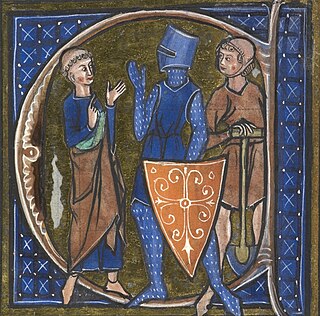
The estates of the realm, or three estates, were the broad orders of social hierarchy used in Christendom from the Middle Ages to early modern Europe. Different systems for dividing society members into estates developed and evolved over time.
Common may refer to:
Ratu is an Austronesian title used by male Fijians of chiefly rank. An equivalent title, adi, is used by females of chiefly rank. In the Malay language, the title ratu is also the traditional honorific title to refer to the ruling king or queen in Javanese culture. Thus in Java, a royal palace is called "keraton", constructed from the circumfix ke- -an and Ratu, to describe the residence of the ratu.
Lower class may refer to:

The landed gentry, or the gentry, is a largely historical British social class of landowners who could live entirely from rental income, or at least had a country estate. While distinct from, and socially below, the British peerage, their economic base in land was often similar, and some of the landed gentry were wealthier than some peers. Many gentry were close relatives of peers, and it was not uncommon for gentry to marry into peerage. It is the British element of the wider European class of gentry. With or without noble title, owning rural land estates often brought with it the legal rights of lord of the manor, and the less formal name or title of squire, in Scotland laird.
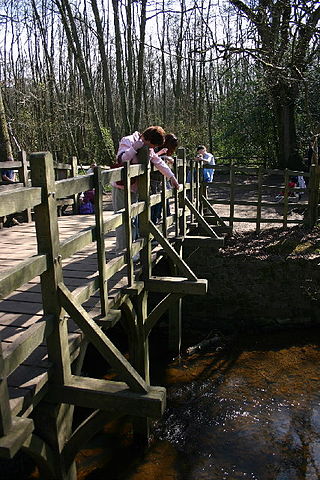
Common land is land owned by a person or collectively by a number of persons, over which other persons have certain common rights, such as to allow their livestock to graze upon it, to collect wood, or to cut turf for fuel.
Freeman, free men, or variants may refer to:
The term von ( ) is used in German language surnames either as a nobiliary particle indicating a noble patrilineality, or as a simple preposition used by commoners that means of or from.
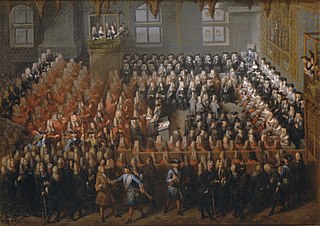
The Parlement of Paris was the oldest parlement in the Kingdom of France, formed in the 14th century. It was fixed in Paris by Philip IV of France in 1302. The Parlement of Paris would hold sessions inside the medieval royal palace on the Île de la Cité, nowadays still the site of the Paris Hall of Justice.
An everyman is stock character in drama. This person is an ordinary individual, with whom the audience is able to easily identify.
The German nobility and royalty were status groups of the medieval society in Central Europe, which enjoyed certain privileges relative to other people under the laws and customs in the German-speaking area, until the beginning of the 20th century. Historically, German entities that recognized or conferred nobility included the Holy Roman Empire (962–1806), the German Confederation (1814–1866) and the German Empire (1871–1918). Chancellor Otto von Bismarck in the German Empire had a policy of expanding his political base by ennobling nouveau riche industrialists and businessmen who had no noble ancestors. The nobility flourished during the dramatic industrialization and urbanization of Germany after 1850. Landowners modernized their estates, and oriented their business to an international market. Many younger sons were positioned in the rapidly growing national and regional civil service bureaucracies, as well as in the officer corps of the military. They acquired not only the technical skills but the necessary education in high prestige German universities that facilitated their success. Many became political leaders of new reform organizations such as agrarian leagues, and pressure groups. The Roman Catholic nobility played a major role in forming the new Centre Party in resistance to Bismarck's anti-Catholic Kulturkampf, while Protestant nobles were similarly active in the Conservative Party.
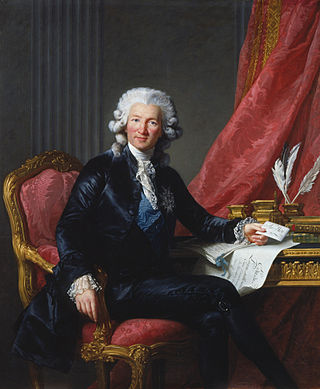
Under the Ancien Régime of France, the Nobles of the Robe or Nobles of the Gown were French aristocrats whose rank came from holding certain judicial or administrative posts. As a rule, the positions did not of themselves give the holder a title of nobility, such as baron or viscount, but they were almost always attached to a specific function. The offices were often hereditary, and by 1789, most of the holders had inherited their positions. The most influential of them were the 1,100 members of the 13 parlements, or courts of appeal.
Social estates in the Russian Empire were denoted by the term soslovie (sosloviye), which approximately corresponds to the notion of the estate of the realm. The system of sosloviyes was a peculiar system of social groups in the history of the Russian Empire. In Russian language the terms "сословие" and "состояние" were used interchangeably.
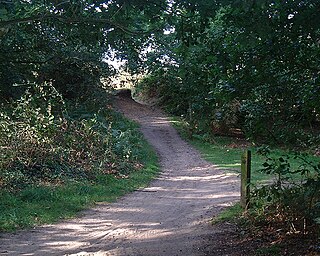
Rushmere Common is common land situated on the eastern outskirts of Ipswich mainly within the parish of Rushmere St. Andrew, Suffolk, England. It is predominately heathland, gorse and woodland, and hosts a golf course. It adjoins the Sandlings Open Space to the east and is crossed by a number of footpaths, including the Sandlings Walk – a long-distance footpath which starts on the common and ends 50 miles away in Southwold.
A courtesy title is a title that does not have legal significance but is rather used by custom or courtesy, particularly, in the context of nobility, the titles used by children of members of the nobility.
Quarters of nobility is an expression used in the bestowal of hereditary titles and refers to the number of generations in typically an ahnentafel in which noble status has been held by a family regardless of whether a title was actually in use by each person in the ancestral line in question.
A commoner, also known as the common man, commoners, the common people or the masses, was in earlier use an ordinary person in a community or nation who did not have any significant social status, especially a member of neither royalty, nobility, nor any part of the aristocracy. Depending on culture and period, other elevated persons may have had higher social status in their own right, or were regarded as commoners if lacking an aristocratic background.

Nobility is a social class found in many societies that have an aristocracy. It is normally ranked immediately below royalty. Nobility has often been an estate of the realm with many exclusive functions and characteristics. The characteristics associated with nobility may constitute substantial advantages over or relative to non-nobles or simply formal functions, and vary by country and by era. Membership in the nobility, including rights and responsibilities, is typically hereditary and patrilineal.
A commoner is a student at certain universities in the British Isles who historically pays for his own tuition and commons, typically contrasted with scholars and exhibitioners, who were given financial emoluments towards their fees.